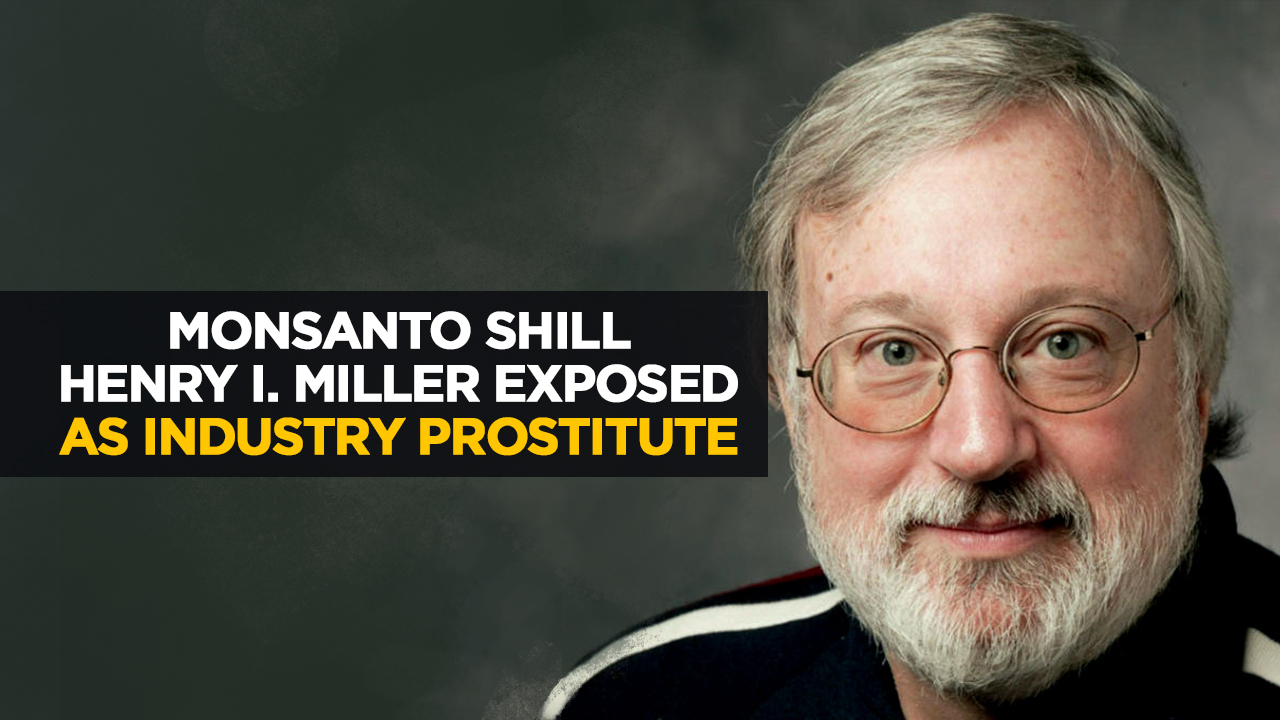National Academy of Sciences has been totally corrupted by GMO-pushing biotech corporations that wield astonishing financial influence over science
04/05/2017 / By Vicki Batts

Who better to provide Congress with guidance on science-related policies than a panel of the nation’s so-called experts that have been corrupted by the industry? The National Academies of Sciences, Engineering and Medicine have recently come under fire, thanks to a biotechnology panel that was found to be littered with financial ties to Big Biotech.
While the Academies proclaim to pride themselves as being “advisers to the nation,” it seems that at least one of their committees prides itself more on being in the industry’s back pocket.
A recent report from the Academies’ panel for biotechnology claimed to have no conflict of interest, even though their very own web page on the panel members seems to tell a different story. Several committee members boast conflicts of interest, and at least two violate the Academies’ stringent conflict-of-interest policy, according to The New York Times.
To make matters worse, an employee of the Academies’ was also searching for new employment at the time he was selecting the 13 people he recommended for the biotech panel. Three of those 13 individuals turned out to be board members belonging to his new employer. If you haven’t guessed it already, the “new employer” is a biotechnology company — surprise, surprise.
The National Academies have defended these conflicts of interest, and maintain that because the type of expertise required of their staff is “limited,” a certain level of conflict “must be tolerated.” However, many people feel these “conflicts” undermine the integrity of the organization, as well as its authority. Indeed, it leaves us all questioning whether or not their so-called facts are even real.
In total, the Times identified seven panelists who had commercial interests that could be affected by regulations, or had been associated with the industry in some way. Because there were 13 panel members, it would seem that those without a conflict of interest were in the minority. Here are the seven panel members that are potentially corrupted by industry influence, and what their ties to the biotech industry are:
Steven P. Bradbury: A professor of environmental toxicology at Iowa State University, and the owner of Steven P. Bradbury & Associates, a consulting company that advises biotech firms.
Farren Issacs: Assistant professor of molecular, cellular and developmental biology at Yale University, and the co-founder of enEvolv, a company that “re-engineers” microbes into chemicals for industrial purposes.
Richard M. Amasino: A professor of biochemistry at the University of Wisconsin who holds patents on several biotech processes.
Jeffrey Wolt: Professor of agronomy and toxicology at Iowa State University, and a former Dow Chemical employee. The National Academies have disclosed that he has commercial interests that violate their policies. He is still on the panel, as the Academies have concluded that the level of conflict was “unavoidable.”
Steven L. Evans: Evans currently works for Dow AgroSciences as a fellow in seeds discovery research and development. This is a clear conflict of interest that the Academies have disclosed and dismissed once again as “unavoidable.”
Richard Johnson: A former senior partner at international law firm, Arnold & Porter, and the chief executive and founder of Global Helix — a consulting company that “may” advise clients in the biotech industry. Johnson has since resigned.
Richard Murray: A professor of bioengineering at California Institute of Technology, and the co-founder Synvitrobio, a biotech start-up.
To say that these conflicts may “color” the perception of these panel members is an understatement. These people have clear ties to the biotechnology industry, with many of them being an explicit part of the industry they have been deigned to help regulate via their advisory reports. How can anything they say really be trusted, when over half the panel has a potential conflict? (RELATED: Learn more about corruption in mainstream science at FakeScience.news)
Sources:
Tagged Under: biotech, corruption

















